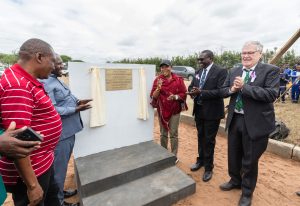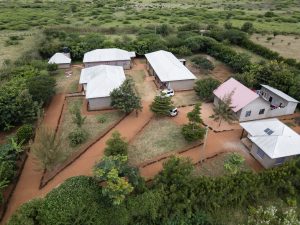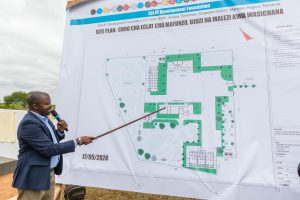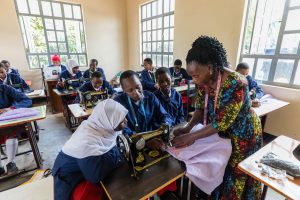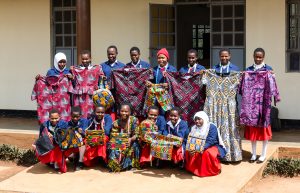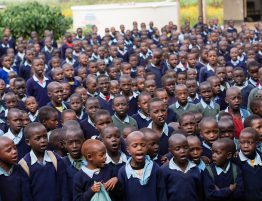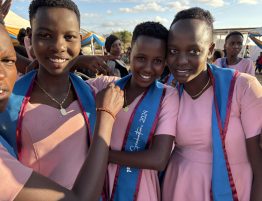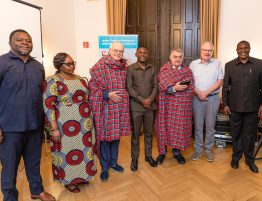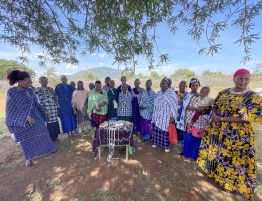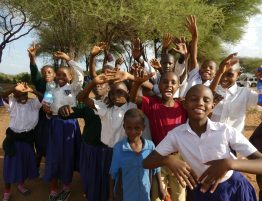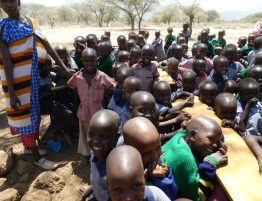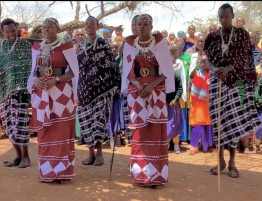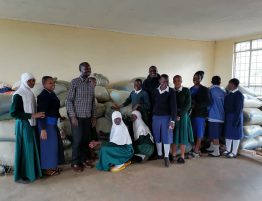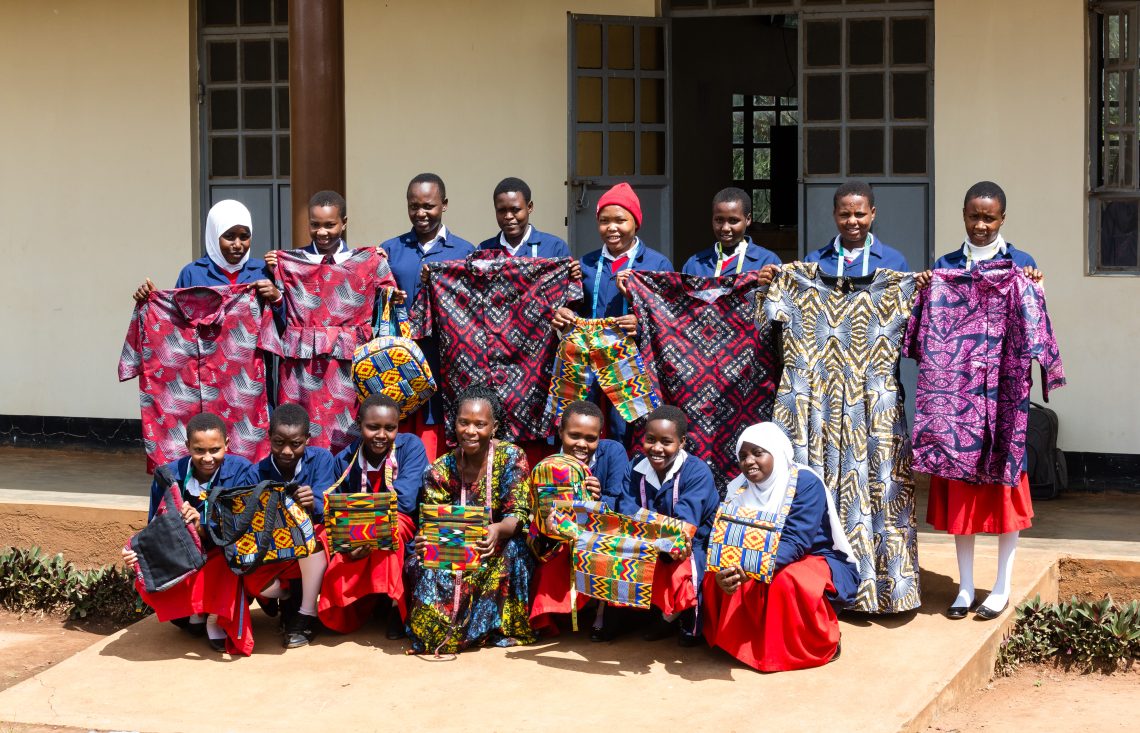
Laying the foundation stone for the training centre for teenage girls
On 17 May 2024, ECLAT and upendo laid the foundation stone for our most recent project: A vocational training centre for teenage girls who do not qualify for further education in Tanzania’s school system – as an alternative to forced marriage.
School situation
Thanks to the financial support of various foundations, we have been able to build, expand or renovate almost 50 primary schools in Tanzania over the past 10 years. The number of children actually attending school in the Simanjiro district has risen noticeably: Whereas just a few years ago, more than 70% of school-age children were not attending school, this figure had been reduced to 28% by the 2022 census. The situation is similar in the equally underdeveloped neighbouring districts in which we also operate. We can observe this encouraging development on each of our numerous school visits: The number of children in a classroom usually exceeds the government’s target of 45, and often more than 100 children are taught together in one classroom – with the corresponding educational success. Although the government has sent more teachers than before (and has promised that they will send even more to our catchment area), more schools and teachers are needed given the population growth and the high illiteracy rate. Most importantly, the value of education needs to be continued to be communicated to the population so that parents actually send their children to school. We have already achieved a great deal in this direction, but much remains to be done.
Final exams
Unfortunately, the high number of children in school also means that many of them, both boys and girls, do not pass their intermediate and final exams. They do not qualify for further schooling and end up returning to their old environment due to a lack of alternatives. Even though they have certainly learnt a lot at school and will ensure that their own children will be better supported at school than they were themselves, many take on the traditional roles of their culture. For the girls, this means that they are forced to marry and have children as teenagers in accordance with Maasai tradition.
The new training centre
Thanks to funding from the BMZ (German Federal Ministry for Economic Cooperation and Development) and a foundation, ECLAT was in a position to start building a new training centre for adolescent girls in May this year. The aim is to offer school drop-outs vocational training as an alternative to forced marriage. The project was intensively prepared and planned in detail last year in a workshop in which the girls from the provisional course also took part. The girls helped us to better understand their situation of being young Maasai women. They talked about their fears, hopes and expectations. It was moving to see how they spoke openly with us about themselves and their situation.
We are happy that the centre can now be built as a result of this workshop, with a dormitory, classrooms, canteen with kitchen, toilets and washrooms, two workshops and houses for the teachers. The Toima and Philomena Kiroya family have donated a large piece of their land for this purpose, leaving enough space for sporting activities. The area is fenced off to protect it from wild animals and unwanted guests. Fresh groundwater will be stored and distributed in water tanks on the site and all buildings will be connected to the now available public electricity grid.
After intensive deliberation and consultation, also with the girls concerned, two-year courses are now offered in the fields of Food and Beverage Production and Design Clothing and Tailoring. Every year, 22 girls who leave the Tanzanian school system without a qualification are to start their training. In addition to technical training, ECLAT also offers them instruction in general topics such as hygiene, family planning and economic activities. English and computer skills are also on the timetable. After passing their final exams, they receive both a certificate that is officially recognised in Tanzania as well as an initial kit to help them become more independent.
The training course for the first girls will start in the new centre at the beginning of next year: We are excited to see how this new project will help to strengthen the position of women in Maasai culture in the long term.
Teenage girls are looking for alternatives
Many of them have already been able to widen their horizons through schooling, even if they were not among the strongest pupils and had to end their school career prematurely. They are looking for alternatives to forced marriage; the potential for conflict with their traditionally-minded parents is great, but once they have children of their own, they will no longer be in a position to evade their traditional role. upendo and ECLAT launched a pilot project for them at the beginning of 2023: Teenage girls who have stopped going to school can learn a simple trade on a two-year course. The course is still provisionally housed in ECLAT’s women’s centre, where the girls also live and sleep. As the demand for training places clearly exceeds the available space, some girls from the neighbourhood have also been accepted as day students. The girls are enthusiastic and many would like to continue learning after the two years of training at the end of 2024.
Fotos: Rüdiger Fessel
Layout: Heike Ponge

